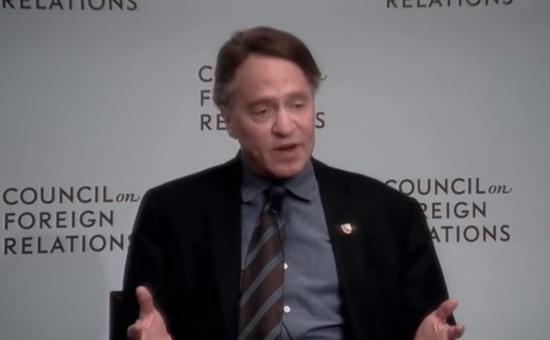
On November 15, 2023, NetEase Smart News reported that public perception of artificial intelligence (AI) in 2017 was a mix of fear and cautious optimism. While many were wary of its unknown potential, an increasing number believed AI would play a pivotal role in human progress. These voices weren’t from outsiders or eccentric thinkers—they came from leading researchers at tech giants like Google.
Ray Kurzweil, a renowned AI expert and futurist at Google, recently spoke at the “Intimate Q&A Session†hosted by the Committee on Foreign Relations. His views on the future of humanity may seem radical to some, especially given the warnings from figures like Elon Musk and Stephen Hawking about the dangers of AI. But Kurzweil’s perspective is grounded in data and long-term trends.
Kurzweil emphasized that we are living in one of the best times in human history. He pointed out that hunger and poverty have never been lower, with three billion people now owning smartphones—more than he initially expected. In the coming years, this number is set to double, reflecting the rapid spread of digital connectivity across the globe.
Although the world has not been free of conflict, the deadliest war in history, World War II, ended over 70 years ago. Since then, while smaller conflicts and wars have persisted, the global landscape has seen a significant decline in large-scale warfare. The U.S., for instance, remains engaged in its longest war, but overall, the world is experiencing an unprecedented era of peace compared to previous centuries.
However, concerns about AI remain. Some fear it could lead to new forms of destruction, raising questions about whether the next global conflict might be even more devastating than the last. But Kurzweil argues that the situation is more complex than it appears.
He believes that democracy’s global expansion and advances in communication technology have played a key role in maintaining peace. A century ago, only a handful of countries were democratic; today, the world seems more peaceful, though this doesn’t mean all problems have disappeared. Instead, our understanding of global issues has improved, allowing for better responses and solutions.
Kurzweil envisions a future where humans evolve beyond biology, integrating technology into our very being. This won’t result in cyborgs or metal monsters, but rather in seamless integration—like a chip in your brain, not just an iPhone. In the near future, you won’t need to ask a device for the weather; it will appear in your mind directly.
By 2029, he predicts medical robots will be able to enter our brains, linking our neural cortex to smart clouds. These ideas may sound futuristic, even shocking, but Kurzweil has a track record of accurate predictions. Over 90% of his forecasts have come true, making his insights worth considering.
He also reminded us that we often underestimate how far we’ve come. Just a few years ago, voice control on phones was unreliable and frustrating. Today, smartphones can handle complex commands, recognize voices, and perform tasks effortlessly. What once felt impossible is now a reality.
Experts like Kurzweil argue that AI is already deeply embedded in our daily lives. Though we may not notice it immediately, our reliance on machine learning is growing rapidly. The pace of AI development is accelerating, driven by the law of accelerating returns and the vision of pioneers like Kurzweil.
As we move forward, the boundaries of what machines can do will continue to expand. It’s time to rethink what we consider possible. Whether it’s connecting our minds to the cloud or redefining the limits of human potential, the future is not just coming—it’s here, and it’s changing everything.
Stylus Pen Tips,Replacement Stylus Nibs,Replacement Tip,Active Stylus Tip,Stylus Pen Tip Nib
Shenzhen Ruidian Technology CO., Ltd , https://www.wisonen.com